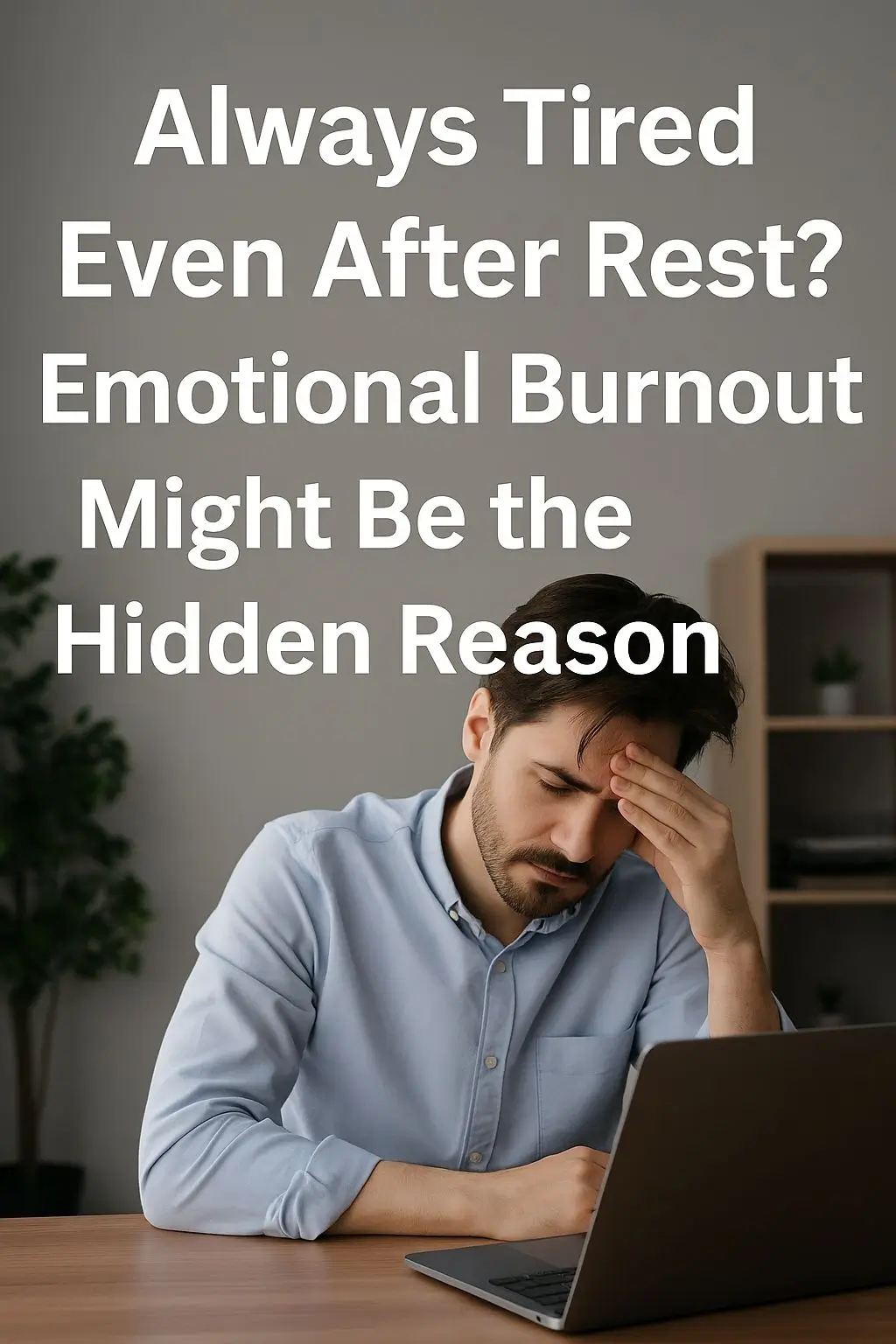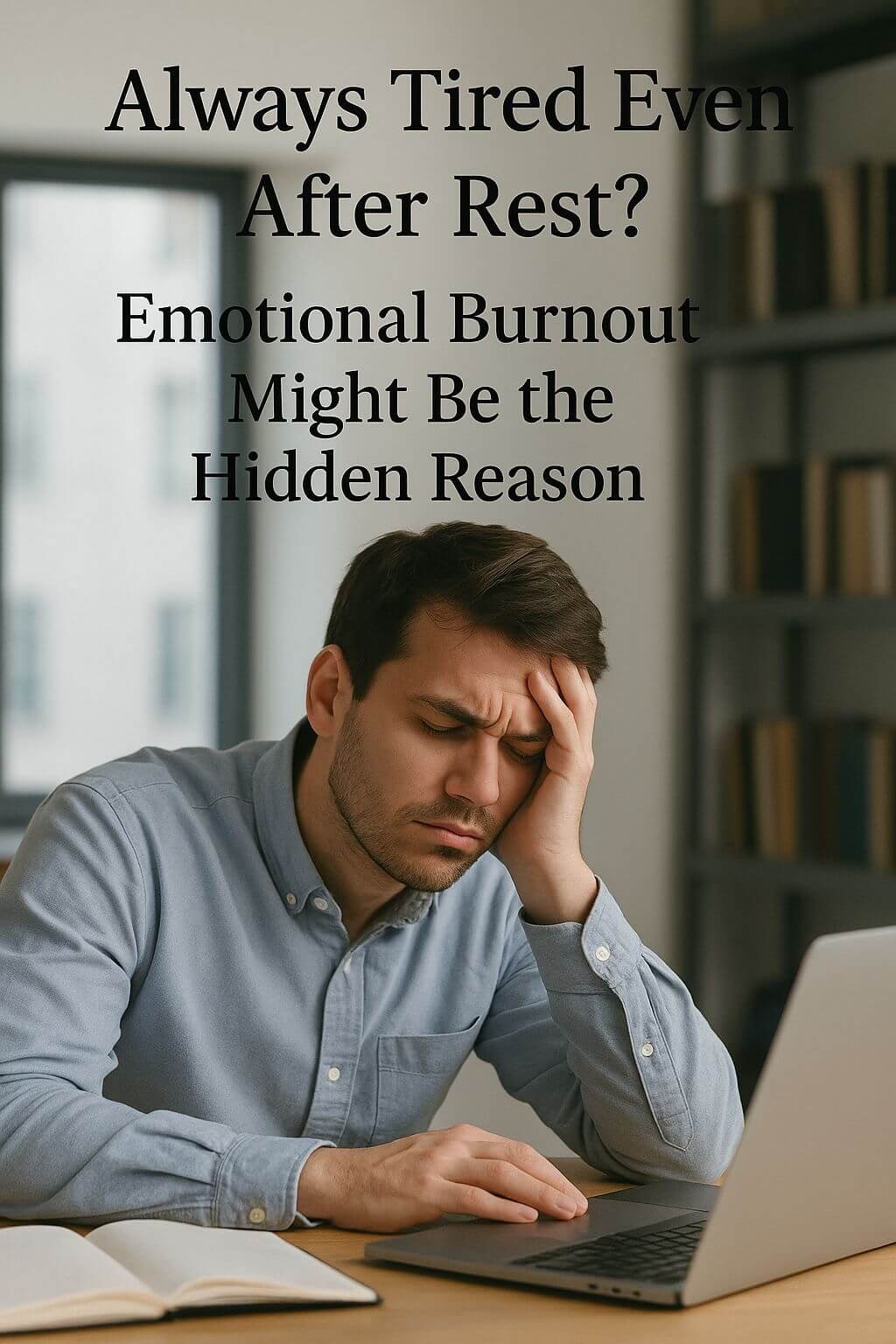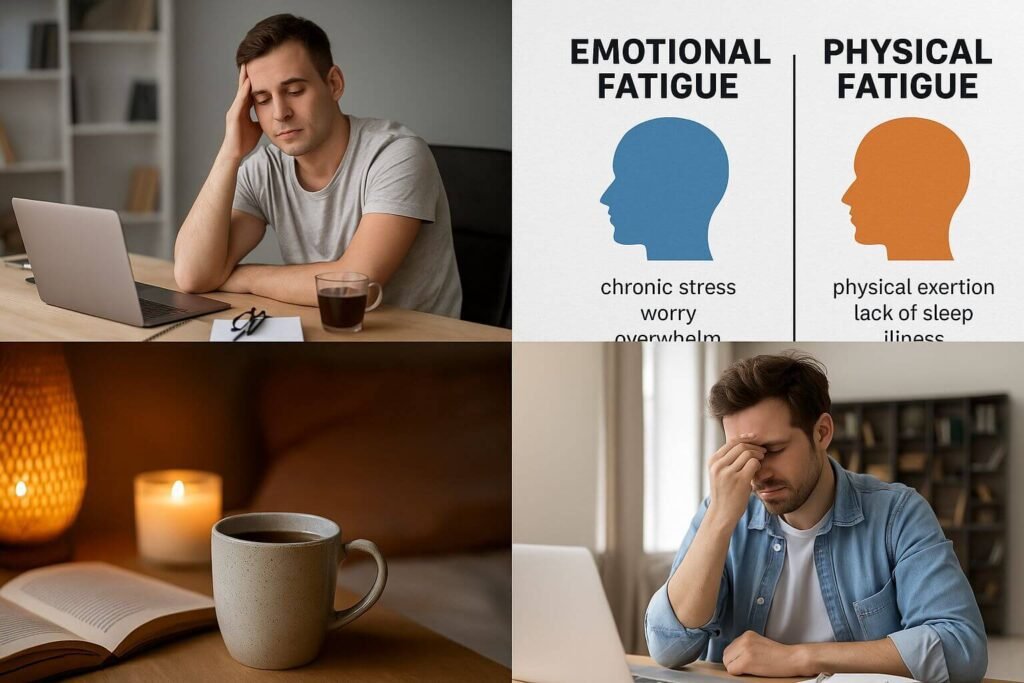
Always Tired After Rest? Emotional Burnout Might Be Why
⸻

Always tired after rest? You’re not alone. Millions silently struggle with exhaustion that doesn’t go away—even after sleeping well or taking time off.
You’re not alone.
Millions of people silently battle chronic fatigue that just doesn’t go away. They sleep, they rest, and yet… the exhaustion lingers.
What if the reason isn’t physical at all?
In this article, we’ll explore the hidden impact of emotional burnout—and why your brain, not your body, might be the real source of your fatigue. Plus, you’ll get simple, science-backed tips to feel like yourself again.
⸻
Key Takeaways
• Emotional fatigue can be just as draining as physical exhaustion.
• Burnout symptoms often go unrecognized until it’s too late.
• Improving your sleep and managing stress can help restore your energy.
• Small changes in your daily habits can make a big difference.
⸻
Emotional vs. Physical Fatigue: Know the Difference

Physical tiredness is easy to explain—you’ve worked hard, exercised, or lacked sleep.
But emotional fatigue is sneakier. It builds up from stress, overwhelm, constant decision-making, and emotional strain. Even when your body is at rest, your mind is still running.
You wake up tired because your brain never actually “logged out.”
⸻
Why You’re Always Tired After Rest
Many people feel tired all the time, even after resting or sleeping well. This constant fatigue is often linked to emotional burnout, not just physical tiredness.
How Constant Fatigue Disrupts Your Life
Emotional burnout doesn’t just affect your energy levels. It spills into:
• Your focus and productivity
• Your mood and patience
• Your ability to enjoy things you used to love
It becomes a silent thief, stealing joy and clarity from your everyday life.
⸻
Rest vs. Rejuvenating Sleep
Not all rest is created equal.
If you’re spending hours in bed but still waking up exhausted, you may be missing quality sleep—the kind that restores both body and mind.
✅ Tip: Try a 90-minute wind-down routine without screens or stress before bed. Let your mind signal your body it’s safe to relax.
⸻
Tips to Improve Sleep Quality

• Stick to a consistent sleep schedule—even on weekends.
• Use a sleep mask or blackout curtains.
• Avoid caffeine after 2 PM.
• Use calming techniques like journaling, reading, or breathing exercises before sleep.
• Listen to white noise or nature sounds.
⸻
Impact on Mood and Brain Function
Emotional burnout doesn’t just drain you—it changes you.
Studies show chronic stress can:
• Shrink the prefrontal cortex (your decision-making center)
• Increase irritability and anxiety
• Make it harder to concentrate or be creative
You’re not “lazy”—your brain is in survival mode.
⸻
Easy Sleep Fixes That Actually Work
• Invest in a comfortable mattress and pillow.
• Keep your bedroom temperature between 16-19°C (60-67°F).
• Don’t use your phone in bed. (Yes, really.)
• Try magnesium or herbal teas like chamomile before sleeping.
⸻

Are You Burning Out? Watch for These Signs
• You wake up tired every day.
• Small tasks feel overwhelming.
• You get irritable or emotional easily.
• You can’t focus or find joy in usual things.
• You feel “mentally foggy” all the time.
These aren’t just bad days—they may be warning signs from your nervous system.
⸻
Final Thoughts: You’re Not Alone
Feeling tired all the time doesn’t mean you’re broken. It may simply mean you’ve been holding on for too long.
Give yourself permission to rest—not just physically, but emotionally.
Try one new habit from this article. Protect your energy like it’s gold—because it is.
⸻
💬 Have you experienced emotional burnout?
Tell us in the comments—or share this article with someone who needs it.
You never know who might be silently exhausted and in need of these words


